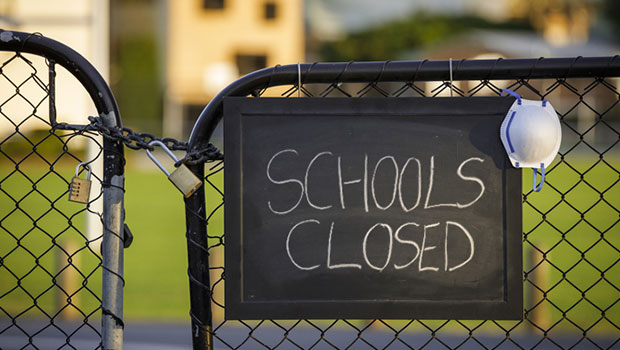CEA Supports Decision to Keep Schools Closed Health and safety procedures must be in place before schools reopen in the fall.
CEA applauds Governor Lamont for listening to public health experts in his decision to close schools for the remainder of this school year. Making the safety and health of students and staff the top priority will help save lives and prevent the further spread of COVID-19.
CEA Supports Decision to Keep Schools Closed
Health and safety procedures must be in place before schools reopen in the fall
CEA applauds Governor Lamont for listening to public health experts in his decision to close schools for
the remainder of this school year. Making the safety and health of students and staff the top priority will
help save lives and prevent the further spread of COVID-19.
“We understand the emotion and sadness regarding closing schools and missing certain milestones and
celebrations, but at this time, everyone’s top priority must be to protect the health of students and staff,
and to prevent the spread of the coronavirus,” said CEA President Jeff Leake.
While there is no substitute for in-person teaching, educators will continue to provide distance learning
and do all they can to keep students engaged and learning during the next several weeks, as they have
been doing since mid-March.
“This crisis is not over,” cautioned Leake, “and experts say a resurgence of the virus could occur this
fall. We must use the next few months to ensure that safety procedures and protocols are in place before
students, teachers, and staff re-enter the classrooms.”
Schools are gathering places for large numbers of students and staff, and are not ordinarily conducive to
social distancing. CEA says special accommodations must be made while the pandemic continues to
pose a risk.
Those accommodations include:
- Comprehensive coronavirus testing, tracing, and tracking
- Requirements to ensure everyone wears personal protective equipment
- District-provided personal protective equipment
- Staggered start times
- Protections for those at heightened risk—for example, due to health conditions or age
- Revised transportation and school bus protocols and schedules
- Reductions in class size and social distancing protocols
- New lunchtime and classroom seating formats
- Limits or restrictions on visitors
Schools will need to be disinfected daily, with procedures in place for the continual cleaning of
classrooms, hallways, and bathrooms as well as commonly shared areas and equipment, including
computers and desks.
Procedures must also be in place to address when a member of the school community becomes ill or
develops virus symptoms, or if there is an outbreak that requires a district to shut down a school.
“These are unprecedented times, and they call for unprecedented responses,” said Leake. “It is critical
that the state and municipalities meet their responsibility to fund the resources students need when they
return to the classroom—teachers, counselors, psychologists and strong academic programs.”
Additional resources, including summer school, remediation, wellness programs, and emotional support,
will be necessary to support students as they transition back to school—and that requires funding.
Leake concluded, “What happens in the coming months will impact the future of Connecticut’s students
for years to come. We will continue to work with the State Department of Education and be the voice of
teachers—helping to ensure the safe transition back to school for our students and teachers.”
###
The Connecticut Education Association is Connecticut’s largest teachers’ union, representing active and
retired educators across the state.
For further information contact Nancy Andrews at 860-725-6317, [email protected].







